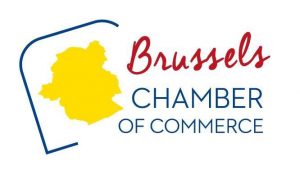Only less than 40 % of payments made in commercial transactions in the European Union are made within the agreed deadline. Prosecution of debtors costs businesses between 5 % and 10 % of all administrative work. Each day of reducing late payments results in estimated savings of EUR 158 million in financing costs for EU companies.
European Directive on late payments
There is a European directive on late payment. It states that public authorities must pay for goods and services within 30 days. Companies must pay their bills within 60 days. Payment periods of more than 60 days may be negotiated, provided that they are expressly agreed and are not manifestly unfair to the creditor.
Companies are automatically entitled to claim interest on late payment and to obtain a minimum fixed amount of EUR 40 as compensation for recovery costs. They can claim reasonable compensation for all remaining collection costs.
The late payment rate shall be at least 8 % above the ECB reference. Public authorities are not allowed to set a lower interest, but companies may do so, provided this is expressly agreed and not manifestly unfair.
Reduction of late payments in the public sector and less satisfactory results for B2B transactions
The Directive has effectively reduced late payments in the public sector. However, significant delays remain in several Member States in the public health sector, central government ministries and local and regional authorities.
In B2B transactions, the results were less satisfactory. More than 60 % of EU companies are paid later than contractual terms. The provisions are less stringent than for the public sector where the maximum payment conditions cannot be derogated under any circumstances.
Effects of reducing late payments on cash flow and business sales
According to a study by the European Commission’s Joint Research Center in 2022, predictable payment times within a “standard” period (30-60 days) increase the cash flow and sales of companies. The reduction in payment deadlines due to the Late Payment Directive over a 4-year period increases the cash flow of companies with particularly long delays by more than 60 %. This has a particular impact on manufacturing and construction. The study estimates that, on average, the Late Payment Directive generates an increase in overall cash flows of around EUR 3.69 million, an increase of around 0.9 %, for each day of reduction in the payment period.
According to the European Payments Report (June 2022)
- 67 % of companies said that if payments were faster, they would improve their sustainability and environmental performance.
- 40 % would grow abroad,
- 47 % would hire more employees,
- 70 % would pay their suppliers faster
The European Commission is consulting companies with a view to revising the late payment directive.
This consultation is part of the European Commission’s preparations for the revision of the Late Payment Directive (2011/7/EU).
The purpose of this consultation is to gather information on the following aspects of late payment:
- the main characteristics of the payment terms used by undertakings;
- the experience of undertakings in unfair payment practices;
- the processing by undertakings of disputes relating to late payments;
- the company’s view on possible policy measures to combat late payments.
This consultation with the support of Enterprise Europe Network is aimed at small and medium-sized enterprises (SMEs) active in any sector of the economy. It focuses solely on payment terms for business-to-business transactions (B2B). Therefore, companies that sell most of the time directly to consumers and/or public administrations should not participate in this consultation.
Give your opinion!
Take part in the consultation and give your opinion by replying to the consultation by 16 March at the latest via the following link: https://ec.europa.eu/eusurvey/runner/sme_panel_late_payment_revision
You can respond to the consultation in the language of your choice. Enterprise Europe Brussels invites as many companies as possible to give their views on adopting policy measures at European level to tackle late payments more effectively.





